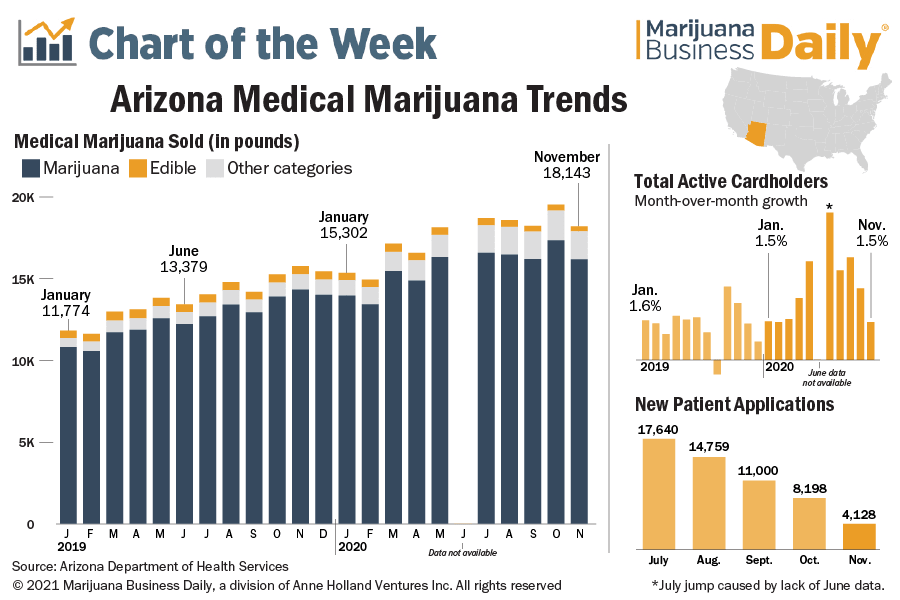 (Editor’s note: This story is part of a recurring series of commentaries from professionals connected to the cannabis industry. is a partner at Denver-based cannabis law firm Vicente Sederberg. He also is the author of the new book, “The Cannabis Business: Understanding Law, Finance, and Governance in America’s Newest Industry.”)
(Editor’s note: This story is part of a recurring series of commentaries from professionals connected to the cannabis industry. is a partner at Denver-based cannabis law firm Vicente Sederberg. He also is the author of the new book, “The Cannabis Business: Understanding Law, Finance, and Governance in America’s Newest Industry.”)
2020 saw several high-profile debt transactions in the cannabis industry, with major companies raising hundreds of millions of dollars through such financings.
But like anything in the cannabis industry, getting a debt deal done requires navigating unique regulatory challenges.
Below are seven regulatory considerations that cannabis borrowers and lenders should keep in mind when pursuing a debt transaction.
It’s impossible to provide definitive answers in this article because cannabis regulators in each state (and, sometimes, each locality) approach these issues differently.
For simplicity’s sake, I’ll use a hypothetical dispensary in California that’s borrowing money to demonstrate how these issues can play out.
1. Regulatory preapproval or disclosure
A key question for the parties involved in a cannabis debt transaction is whether the loan will require preapproval from regulators.
In California, mandatory preapproval is unusual – though not unheard of, as in a transaction where a lender takes control of a borrower. Preapproval might be required in this scenario, depending on where the lender held licenses.
More often, loans must be disclosed when a cannabis business – in this case, our hypothetical dispensary – undergoes its annual license renewal.
Other states might not have an explicit requirement to disclose loans to regulators.
But attorneys and other practitioners still recommend making a disclosure if the loan was not mentioned on the license application.
While California typically does not require preapproval of a loan, annual license applications must include a disclosure of the loans made to the applicant, as well as:
- The loan amount.
- The term.
- The collateral backing up the loan.
- The lender’s name and contact information.
2. Background checks
Whether lenders are subject to background checks also varies considerably between states.
Some states want only the lender identified.
Other states will want regulators to conduct a background check of the management and, in some cases, the lender’s owners, or equity holders.
Since many lenders, especially those set up as funds, do not want to expose their ownership to regulators, it is best to consider the ultimate background-check requirements before closing a deal.
Under California regulations, a loan would be considered a financial stake, or interest, in a commercial cannabis business.
But there are limited exceptions – for example, a bank or financial institution making a loan would not be considered a financial-interest holder.
Under California Bureau of Cannabis Control (BCC) regulations, all holders of financial interests must be disclosed – including anyone who owns an entity that is a financial-interest holder.
As a result, lenders should be prepared to disclose the names of their stakeholders as well as their management teams.
3. Covenants and control
In all cannabis markets, only individuals and entities listed on the business license can exercise control over that company’s operations.
This could make certain affirmative and negative covenants in credit agreements – which are typical in other industries – prohibited in cannabis-related debt arrangements.
But there’s one sticking point: Cannabis regulations rarely provide clear guidance on what constitutes control.
California, for example, does not provide clear guidelines on what type of lender covenant would constitute control.
There is simply a restriction covering the control over a licensee’s commercial cannabis operations.
4. Social equity
Typically, guidelines determining who qualifies as a social equity applicant focus on the equity ownership of the company and the demographics of the management team, such as age, income and where the owners live.
But it is still possible a loan, particularly one with a convertible component or equity pledge, could create issues with a license applicant’s social equity designation.
The BCC regulations do not address debt transactions in the social equity context. Social equity guidelines currently exist primarily at the local level in California.
5. Collateralization
Two major assets of cannabis companies are highly regulated – products and licenses.
But it is not always clear if it is permissible to secure a loan using these assets as collateral.
Previously, some regulations used to forbid the practice, though these restrictions have largely gone away.
Lenders and borrower should be aware that regardless of the regulations regarding attaching a lien, pursuing an Article 9 sale (i.e., exercising typical lender rights to seize assets of a defaulting borrower) is not generally possible with cannabis products or licenses.
BCC regulations explicitly recognize the assets of a cannabis business as possible security to back up a loan.
But whether such collateral can be extended to highly regulated assets such as cannabis products and licenses is not addressed.
6. Equity pledge agreements
In general, cannabis regulators must approve the transfer of control of a licensed business.
Because of this, typical equity pledge agreements in debt financings – in which stock is used as a collateral – might not be allowed.
Lawyers and other practitioners typically suggest that regulatory approval be required for a lender to seize or control the ownership, or equity, of a licensed business.
Regulatory concerns around pledges of collateral usually would not apply to a borrower’s nonlicensed business units.
The BCC does not specifically address pledge agreements.
If the ultimate debt transaction in California is one that typically requires regulatory approval, then it would be a good idea to include a requirement to obtain such approval before seizing the equity collateral
7. Worst-case scenarios
Both lenders and borrowers should consider what would occur if the borrower were to default on a loan.
Federal bankruptcy is not an option since cannabis remains illegal at the federal level.
Only certain states have regulations that address insolvency and state receivership programs.
In a state without a cannabis receivership option, any sale of the borrower would need to run through typical change-of-control procedures.
California provides a path for the BCC to permit a state receiver to quickly take over control of a cannabis company.
But it’s worth noting there might be separate licensing issues at the local level to consider. In California, transfer and change-of-control approvals are often more of a local than state-level issue.
Charles Alovisetti can be reached at charlie@vicentesederberg.com.
The previous installment of this series is available here.
To be considered for publication as a guest columnist, please submit your request here by filling out our form.







